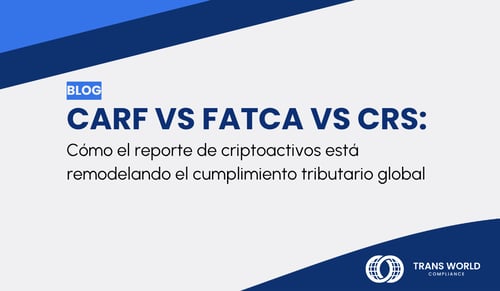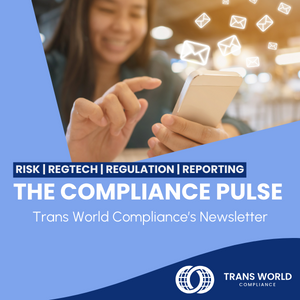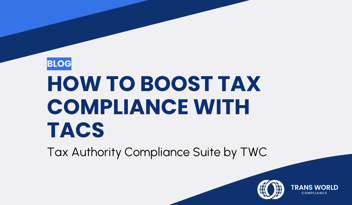Many professionals discover that dealing with FATCA and CRS reporting is far more complicated than they initially thought. It goes beyond just collecting data; you’ve got to handle complex XML file generation, meet different requirements across countries, and adhere to accuracy standards that can significantly impact your compliance efforts.
The truth is that mistakes aren't just common—they're basically unavoidable if you don’t have the right systems and processes in place. These errors can lead to hefty penalties, regulatory scrutiny, and damage to your reputation that goes far beyond just the financial hit.
Here's a rundown to clear up some common CRS myths:
Myth #1: "CRS Is a Common Standard"
Reality: Even though it’s thought of as a universal standard, the way CRS is implemented varies wildly from one place to another. Each country has its own requirements, creating a confusing web of compliance obligations that can easily overwhelm institutions that aren’t prepared. While the basic CRS framework gives you a starting point, what works in one country might not even be close to what you need in another.
Myth #2: "All CRS Jurisdictions Want the Same Info"
Reality: Some places ask for extra information that’s not included in the standard CRS framework. For example, certain countries require place of birth info, which many financial institutions might not have readily available in their existing systems. This shows why it’s smart to rely on software made for multi-jurisdictional compliance instead of sticking to manual processes or systems designed for just one country.
On the FATCA side of things, here are a couple of myths:
Myth #1: "FATCA Only Impacts U.S. Financial Institutions"
Reality: FATCA isn’t just a US thing; it’s global. Foreign financial institutions have to comply with its rules no matter where they are. If they don’t, they could face a hefty 30% withholding tax on certain US payments, making compliance key for any institution with ties to the US.
Myth #2: "FATCA Is Just About U.S. Citizens"
Reality: FATCA actually applies to anyone classified as a "US person for tax purposes." That means it includes not just citizens, but also residents, green card holders, those meeting substantial presence tests, and even certain business entities with US links. This more general definition means financial institutions need to broaden their search when identifying reportable accounts and individuals.
To wrap this up, here are some essential tips for success in international tax compliance:
Keep Learning
The rules for international tax compliance are always changing. Successful institutions prioritize continued education through industry conferences, updates on regulatory changes, reading tax and compliance journals, and regular consultations with compliance specialists and lawyers.
Embrace Technology
Automated systems can be a game-changer for FATCA and CRS compliance. They help reduce errors by processing data systematically, speed up processing times, keep you flexible with new regulations, and scale up as data demands grow.
Doing well in FATCA and CRS compliance isn't just about ticking boxes; it’s about creating solid programs that evolve with the changing landscape while keeping accuracy and efficiency in focus. By getting a grip on the real challenges, busting some common myths, and using proven tactics, financial institutions can turn compliance from a tedious chore into a competitive edge that shows their commitment to regulatory excellence and global responsibility.

How Global Trends Impact FATCA and CRS
AI, politics, privacy — these aren’t just buzzwords. They’re reshaping how financial institutions handle FATCA and CRS compliance. In our latest episode, we break down the role of AI in due diligence, how political shifts could impact enforcement, and why privacy vs. transparency is the new compliance battleground.
Listen to Robert Jan Meindersma (Triple Tax Services) and Nicolás Londoño Pinzón (Trans World Compliance) in a sharp, strategy-focused conversation that goes beyond the rules and into the future of financial compliance.
CARF vs FATCA vs CRS: How Crypto Asset Reporting is Reshaping Global Tax Compliance
Crypto entered the regulation mainstream. In our latest blog, Dave Olenzak breaks down how the OECD's CARF fits into the existing FATCA and CRS frameworks and what this triple threat means for financial institutions. Learn why crypto-to-crypto and even crypto purchases over $50,000 are now reportable, how FATCA paved the way for global tax transparency, and why financial institutions must redesign compliance strategies for a new reality.

.
Fresh Content from Our Experts
Have you seen the new posts from our team? In the past month, Daniel Farías and Daniela Peña have shared videos you might find helpful for your financial institution. If you haven’t, check them out.
New regulations in 2025 BEPS, CARF, DPI: What’s Changing and How to Stay Ahead
Red flags en su proceso de CRS y FATCA

At TWC, we are committed to helping you navigate the ever-changing landscape of compliance and regulations. Whether you have questions, require assistance, or seek innovative solutions, we support you.
Don't hesitate to Contact Us for all your compliance needs. Our team of experts is ready to assist you.
Thank you for being a part of our compliance community. Together, we can stay fully compliant and drive excellence in regulatory technology.
Subscribe on LinkedIn to The Compliance Pulse and never miss an edition.




